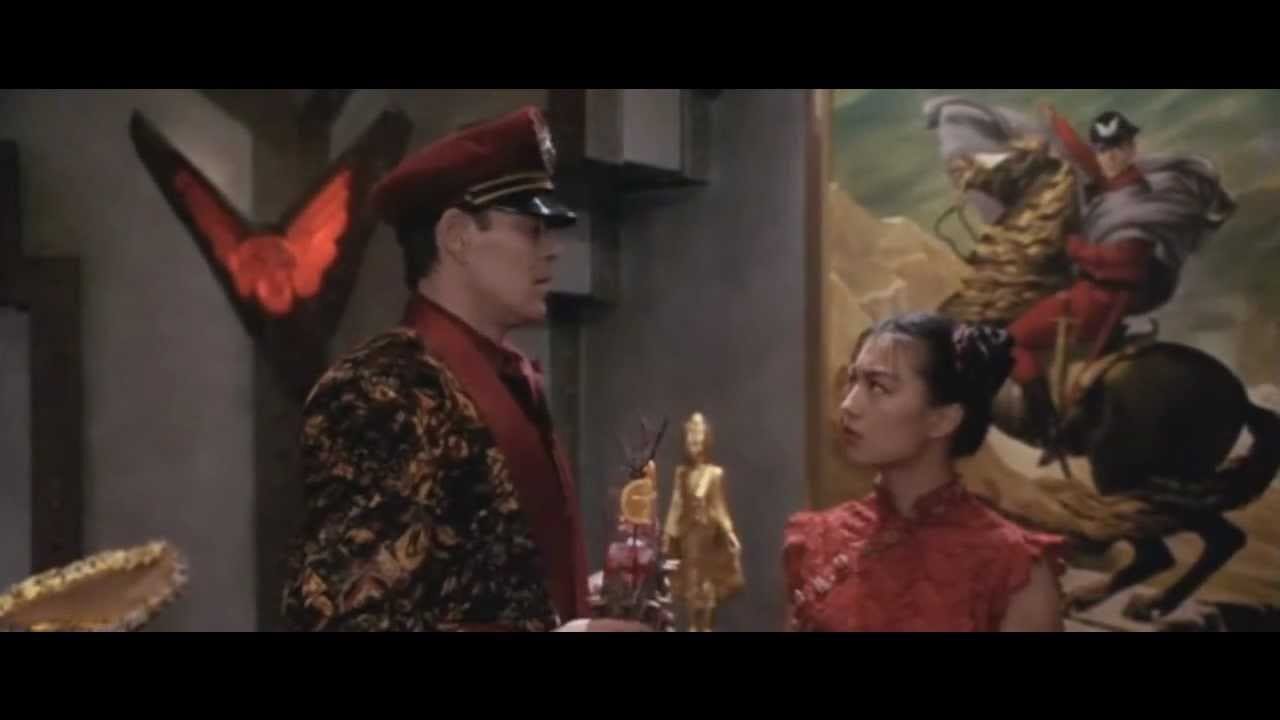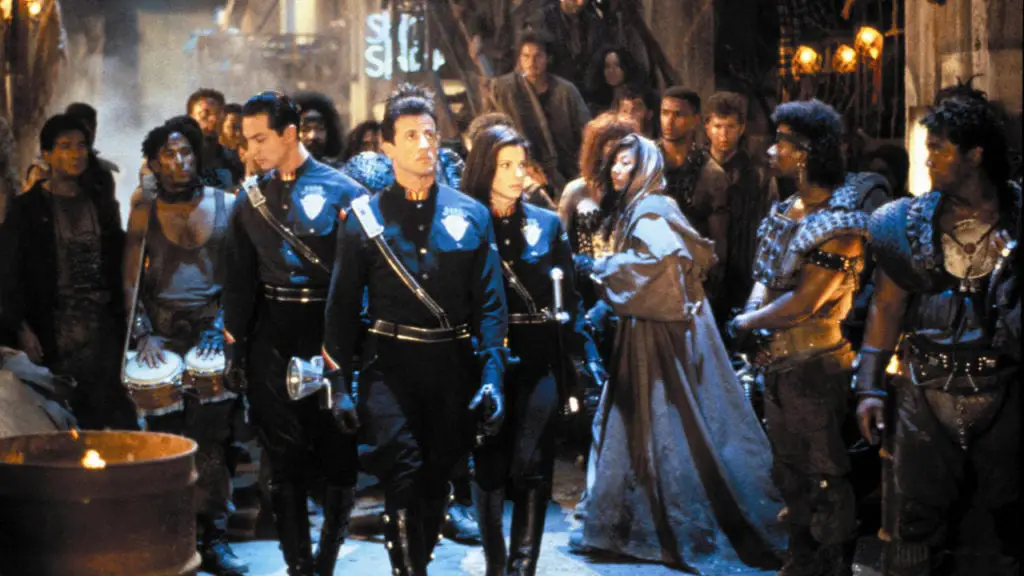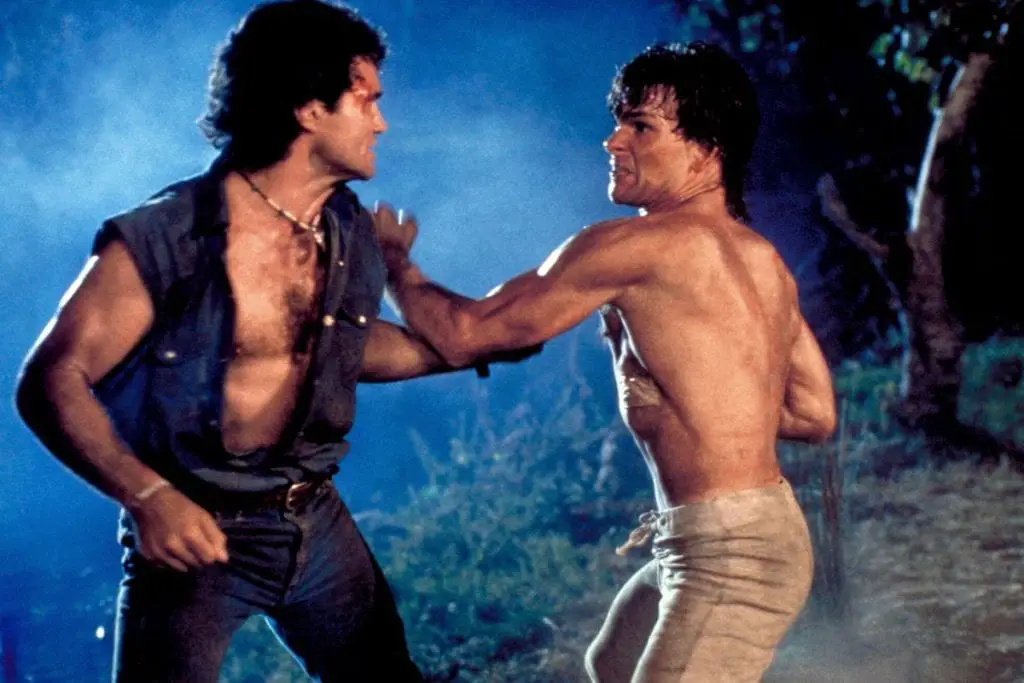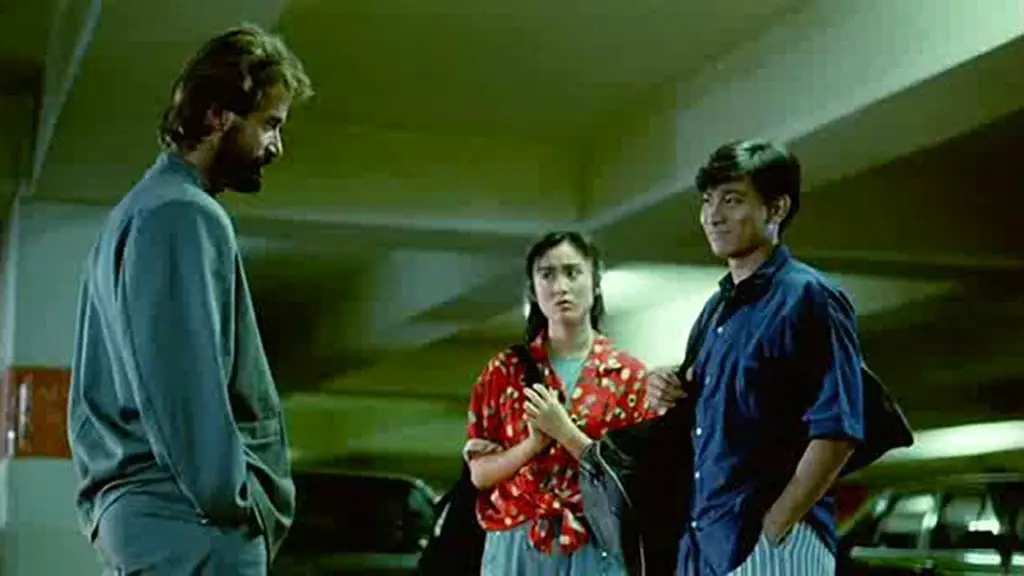One of the most asked and debated questions in the cinephile community is “What movies should I own in my DVD collection?” It’s a question I’ve asked myself, so I did as any writer does and decided to make my own list of essential movies one should have in their DVD collection. Notice the words ‘dvd collection’; I’m talking hard copies here. And it’s worth mentioning that these are not the only five movies one should have in your collection; nor is it in any way saying you have to own all five.
My aim with this series is to hopefully introduce you to some essential films you may never have heard of or, even better, cause you to reevaluate the ones you have seen. Lists are useful for helping broaden one’s base of knowledge, organizing one’s thoughts, and starting a discussion, after all.
Each entry in this article series will revolve around a specific genre or topic. Because (thankfully) movies are constantly being made, I had to set a cut-off date. What I consider The Essentials will be made up of films released before 2015.
Action movies are the bread and butter of the Hollywood summer. Sometimes they’re good, often times they’re not, but then sometimes they’re so bad they’re amazing. These action films are fun despite their ineptitude. The films on this list are not ‘good’ in the traditional or even the literal sense. These are films that aren’t just bad, but they ‘ve gone so far round the bend they came out as good somehow due to their clumsiness and cheapness. They are in a word, ‘cheezy’.
Again, these are not all the essential movies, just some of them.

Street Fighter (1994)
Of all the movies on this list that are disassociated from reality Steven E de Souza’s Street Fighter is the most estranged. Oh sure, the others are unbelievable, hokey, overproduced, and unrealistic; but they at least have stars or characters that somehow pull through. Street Fighter is a glorious miracle it has none of those things even by video game standards this is a bad movie. Unlike the other video game movies, there’s an odd sense of camp fun pervading the whole mess.
Jean-Claude Van Damme as Colonel Guile is chewing the scenery but he delivers his line as if they’re being fed to him live on set. Raul Julia’s mad dictator M. Bison waltzes around the movie soundstage with a fierce delight as he demands the unholy amount of twenty billion dollars, from the world. I say soundstage because there is not a moment in this movie that does not feel as if it was recorded in a studio somewhere. Even the scenes that logically had to have been shot on location feel like their on a soundstage. The Street Fighter video game itself felt more organic and fleshed out than the movie it spawned.
Street Fighter was de Souza’s only outing as a director. He also wrote the script which he should be commended for if only for the scene between Bison and Chun-Li (Ming-Na Wen). Li is being interrogated by Bison and tells him her story of how he killed her father as he ran away and how that inspired her lifelong quest for vengeance. Wen’s delivery of this monologue is priceless but is made even better by Julia making cocktails for both of them as she recounts her tale. The cherry on top is Bison handing her a drink and saying, “I don’t remember. For you, meeting M. Bison was the most important day of your life. For me…it was a Tuesday.”
De Souza wrote and co-wrote a slew of cheesy action flicks such as Commando, The Running Man, Judge Dredd, and Turbulence. But he also helped write Jumpin’ Jack Flash, 48 Hrs, Die Hard and Die Hard II, Ricochet, Hudson Hawk, and Lara Croft Tomb Raider: The Cradle of Life. But Street Fighter remains the one where he shoulders the most blame and praise. A shooting cursed by egos and drunkenness it’s a miracle Street Fighter is as bad as it is, it could have been worse. It could have been mildly good and more than likely a little bit more boring and less fun.

Demolition Man (1993)
Marco Brambilla’s Demolition Man is made up of strange pedigrees. Shot by cinematographer Alex Thomson of Excalibur and Dr. Phibes Rises Again; Demolition Man, aside from Bad Boys, is one with the most style and atmosphere. Edited by *Stuart Baird, the director of Executive Decision, it moves along at brisk pace never dawdling on its own absurdities.
A good thing since absurdity abounds in a movie about a not too distant future cop Sgt. John Spartan (Sylvester Stallone) who captures career psychotic mass criminal/nemesis Simon Phoenix (Wesley Snipes). Phoenix frames Spartan by hiding bodies in the building Spartan blows up to get to him and both are sentenced to a cryogenic prison only to be thawed out in the super far off future of 2032. The future is bright, shiny, homogenized, and so not ready for Simon Phoenix. Good thing John Spartan is thawed out to hunt them down along with Lt. Lenina Huxley (Sandra Bullock) who helps guide John through this new world.
Demolition Man is a movie that is better than it really needs to be. Cheezy as all hell it never really feels like it’s trying your patience. Bullock buoys most of the film as the chipper wide-eyed woman fascinated by the past is really a fantastic foil to Stallone’s hyper-machismo presence. The future looks…well kind of like we expect the future to look with just enough weird updates to keep it amusing. Demolition Man also gets the prize for one of the best flagrant product placements thinly disguised as a plot point/world building.
A video collage artist who dabbles in art installations, Demolition Man serves as Brambilla’s first and last film. In an odd way, the movie is served by Bramilla’s untrained cinematic eye as it looks and feels different than most low-grade action flicks. Yes, it has Sylvester Stallone and Wesley Snipes macho grandstanding as they chew scenery and spit one-liners at each other but Brambilla also understood the less Rob Schneider you have the better.

Road House (1989)
Of all the films on this list, Rowdy Herrington’s Road House is the most grounded in reality. That being said, of the films on this list, Road House in some ways is the most fantastical. The characters in Road House don’t really behave or talk like people actually do which makes it all the more enjoyable.
If you’ve seen “one lone man comes to a small corrupt town not looking for trouble but finds it at every turn as well as the love of a good woman”, you’ve seen them all. But if you haven’t seen Road House then you haven’t seen the dizzying heights of sheer lunacy this genre can achieve.
Dalton (Patrick Swayze) is a bouncer with a Zen-like attitude to his life and work. A minimalist at heart he seems to only really care about making sure guests at the Double Deuce have a drama-free evening. But soon the bar’s owner Frank Tilghman (Kevin Tighe) is facing pressure from the local black hat Brad Wesley (Ben Gazzara)
Easily the most quotable movie on this list, and quite frankly I’d argue for one of the most quotable films of the latter half of the 20th century, Road House is peak eighties. Wholly misogynistic Herrington’s tale of Dalton’s struggle for…whatever, would be offensive if anybody in the movie resembled something akin to a person. At one point Dalton fights one of Wesley’s henchmen, rips his throat out, and then wanders into the lake in front of Wesley’s house, holding the guy’s throat skin flap, wailing his name as Wesley sits on his porch and smokes.
Herrington has directed and written other films but none have reached the lauded heights of Road House. Herrington, either intentionally or unintentionally, makes Dalton and the small Missouri town of Jasper, palpable because he shoots it straight. His cinematographer Dean Cundey, who just a couple years before had shot a little movie called Back to the Future, as well as a cult classic known as Satan’s Cheerleaders lights everything as if it’s a melodrama as opposed to an 80’s low budget action flick. Herrington would go on to write and direct other movies such as Striking Distance, The Stickup, and A Murder of Crows. None of which were anything as memorable as Road House.

Magic Crystal (1986)
Etch the name Cynthia Rothrock into your memory. She may not be the star of Wong Jing’s Magic Crystal but she is the standout. Impressive considering Rothrock’s competition is Andy Lau, Richard Norton, and a plot so convoluted Michael Bay is left speechless. Magic Crystal has everything, espionage, kick-ass martial art fights, alien life forms who present like sentient green chunks of crystal that befriends a young boy, and oh yeah I think there’s some arms dealing and trafficking involved, I think.
Jing’s Magic Crystal is more fever dream schlock than an actual movie. Amidst the crisis that involves no less the fate of the entire free world, we see the wacky antics of Pin-Pin (Bin Bin) and a crystal that seems to be able to do anything. This is only when the movie isn’t too busy trying to untangle its massive plot thread involving the KGB, stolen artifacts, Interpol agents, and because it’s the eighties everywhere, teen sex comedy featuring adults. The plot isn’t really important if only because focusing too much on it can cause a bout of epilepsy. What is important is seeing the joy and skill of Rothrock as she kicks and punches her way through the film every bit and with more charisma than Lau.
Rothrock’s Agent Cindy Morgan is the American Interpol agent assigned to help Lau’s Agent Lo, a head of an elite special force team. Despite the ultra-low budget and the homages that veer largely into outright intellectual property theft, the action is actually pretty stellar. Lau and Rothrock have wonderful chemistry together and get some wonderful fight scenes. One in particular parallels two fights, each with the other in them, that never feels protracted or weirdly edited.
Despite the ham-fisted storytelling and gleeful lunacy pervasive throughout the entire film the action is well shot and put together. We are aware of what is going on and Jin and his cameramen from the Movie Impact Cinematographer’s Team give us full body shots and allow for clean visuals of hits. Jing’s Magic Crystal is possibly the bug nuttiest of all the movies on this list, but it’s also easily hands down the most enjoyable.

Bad Boys (1995)
Michael Bay’s Bad Boys is, like it or not, the beginning of an era. Bay’s name is synonymous with a certain type of over the top action and production design punctuated by his love of all things exploding. Michael Bay is as much an adjective as he is a filmmaker.
Say what you will about Bay, and you can say plenty, but we can’t overlook the fact that Bay chose two black actors, Will Smith and Martin Lawrence, to helm his debut. Detectives Mark Lowrey (Smith) and Marcus Burnett (Lawrence) are the typical sorts one expects to see in a buddy cop comedy/action movie, right down to the class divide, with Lowrey being the rich bachelor, and Burnett being the working class family man. It’s important to remember, while not new to the scene, Smith and Lawrence’s movie careers were not the type befitting action stars.
Bay threw out the script by committee and allowed and encouraged the duo to improvise and riff. Much of the charm and joy of Bad Boys comes from Smith and Lawrence’s exchanges. Few other things are memorable. Bad Boys breaks no real new ground it’s just shiner and fun. Bay infuses what would otherwise be rote cliches by simply allowing his characters to riff with one another, something he hasn’t done in a good long while. By leaning into the cliches, and showing a truly adept hand at framing a car chase and explosions, Bay crafted a modern classic with the barest of scripts or ideas.
Bay’s Bad Boys had, by today’s standards, a paltry budget of $19 million. Yet, watching the action and looking at the set design you would be hard pressed to notice it. Smith and Lawrence’s chemistry is some kind of beautiful alchemy as they riff, banter, and shoot their way through the story. Regardless how you feel about Bay as an auteur, it’s impressive how much of Bay’s cinematic style and personality was so fully realized in his first film. So much column space is spent trashing Bay’s aesthetics and early career as a commercial director it’s easy to forget he cut his teeth interning for George Lucas on Raiders of the Lost Ark. Bay’s debut is startling in its full realization of a doctrine that he’s been immutably faithful to his entire career. A doctrine that is, essentially, “Boom goes the dynamite,” but at the very least he’s honest about it.
*Editor’s Note: We had previously cited Stuart Baird as the director of Re-Animator, instead of Stuart Gordon. This was a mistake on our part and we regret the error.

